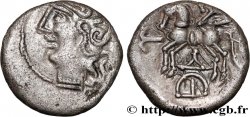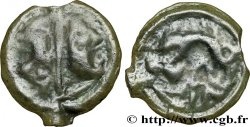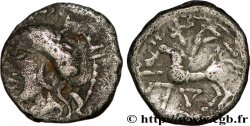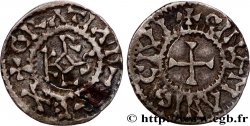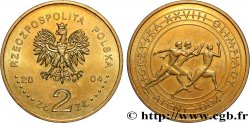bga_940704 - GALLIA BELGICA - LINGONES (Area of Langres) Bronze EKPITO
150.00 €(Approx. 175.50$ | 130.50£)
Quantity
Add to your cart

Type : Bronze EKPITO
Date: c.80-50 AC.
Metal : bronze
Diameter : 15 mm
Orientation dies : 2 h.
Weight : 2,58 g.
Rarity : R2
Coments on the condition:
Beau bronze frappé sur un flan court et décentré au droit. Les deux côtés sont très bien venus. Patine marron
Obverse
Obverse legend : ANÉPIGRAPHE.
Obverse description : Restes de tête humaine à gauche, les cheveux disposés en trois rangées de boucles fines.
Reverse
Reverse legend : [EK-P-ITO] RÉTROGRADE.
Reverse description : Chèvre bondissant à gauche, tournant la tête à droite ; au-dessous, un serpent ; devant, une croisette bouletée accostée de quatre globules.
Commentary
Ces bronze sont rares et souvent mal frappés.
These bronzes are rare and often poorly struck
These bronzes are rare and often poorly struck








 Report a mistake
Report a mistake Print the page
Print the page Share my selection
Share my selection Ask a question
Ask a question Consign / sell
Consign / sell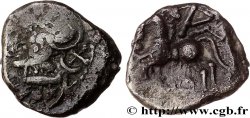
 Full data
Full data

